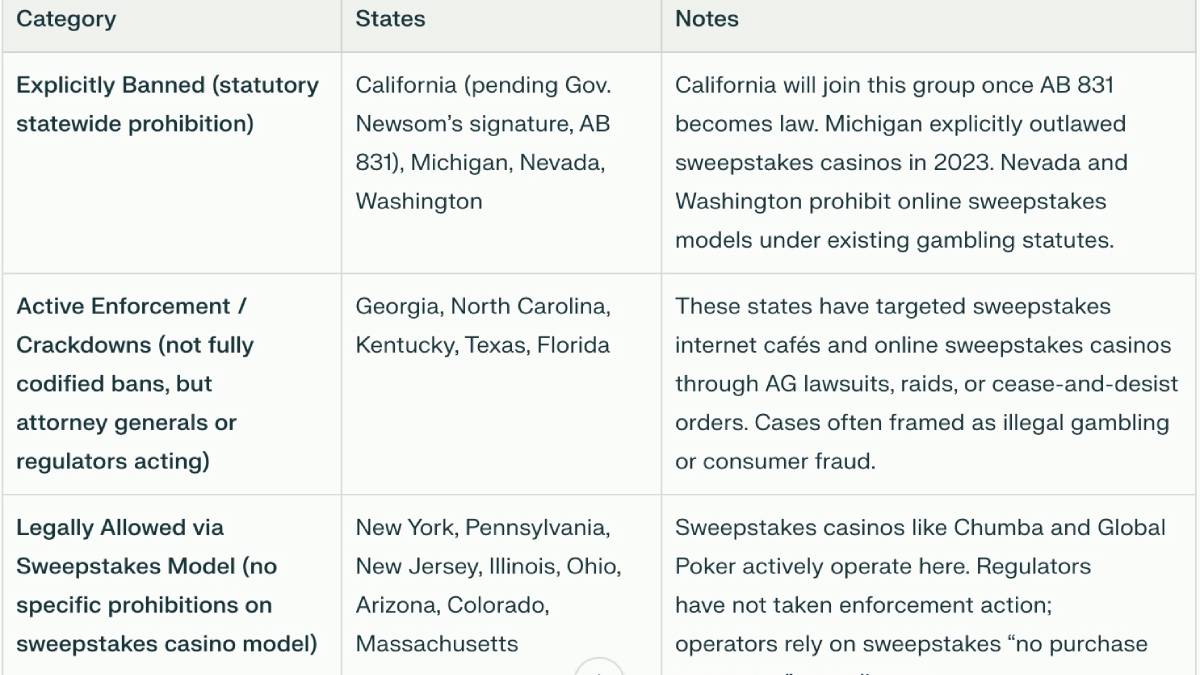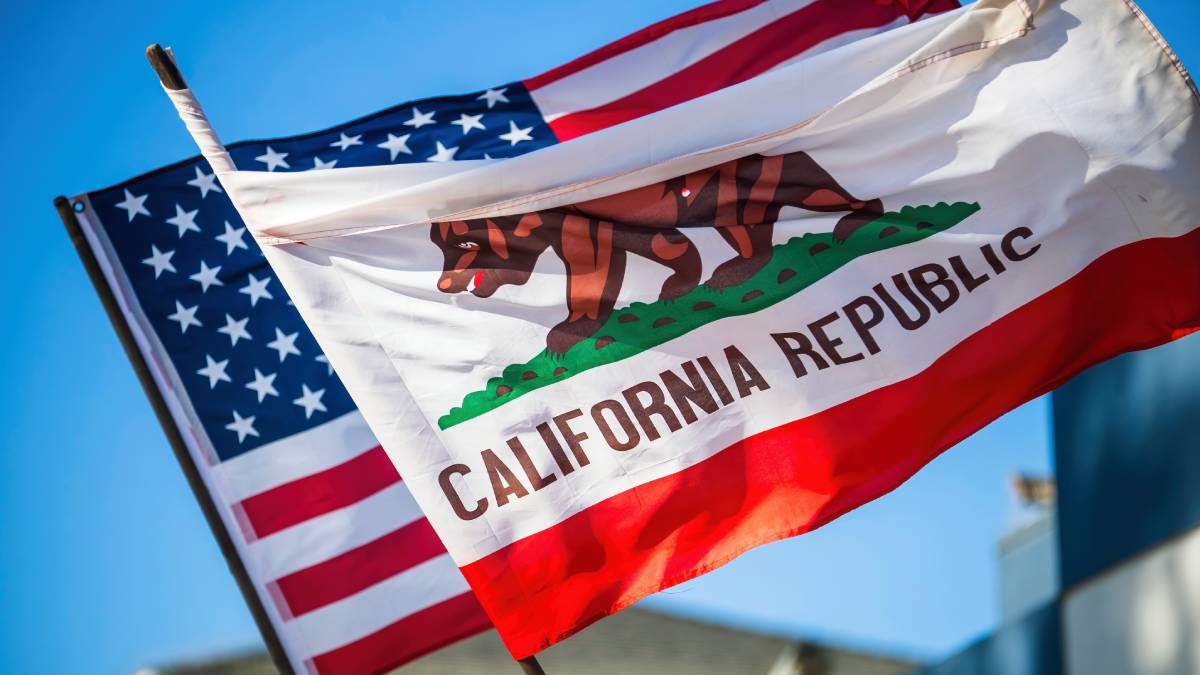All that's left is the Governor's signature.
The California State Assembly has passed AB 831, a significant bill aiming to prohibit online casino sweepstakes operators within the state. Assemblymember Avelino Valencia authored the bill, which saw sweeping approval.
The Assembly passed it on Friday with a unanimous 63-0 vote, mirroring the Senate's earlier unanimous decision of 36-0. This legislative action now seeks the approval of Governor Gavin Newsom.
The intent behind AB 831 is to target online sweepstakes casinos that operate using a sweepstakes model. These operators claim to function through promotional contests rather than traditional gambling practices. However, both lawmakers and tribal representatives argue that these platforms mimic unlicensed gambling and pose competition to regulated tribal casinos.
This move also comes in the wake of the decision by Pragmatic Play to leave the social casino market in the United States.
Support and Opposition for Online Sweepstakes Casinos
AB 831 was introduced by Assemblymember Avelino Valencia. After advancing through initial Assembly readings, it was amended and passed unanimously by the Senate in early September. The recent Assembly vote marks the completion of its legislative process.
The bill has received strong backing from tribal casino interests, who view it as necessary to protect regulated operations.

Conversely, sweepstakes casino groups and advocacy organizations representing smaller tribal and non-tribal communities oppose the ban. They argue that it represents governmental overreach and unfairly reduces consumer choice. Notably, four tribes have dissented, claiming the bill protects established tribal casino monopolies.
Following the Assembly vote, the Social Leadership and Gaming Alliance expressed disappointment over the decision, criticizing the absence of debate and consideration of alternatives to a full ban. The SGLA warned that moving forward with AB 831 would eliminate more than $1 billion in direct and indirect economic activity in the state each year and deprive California of hundreds of millions of dollars in potential new revenue annually.
Where Do Other States Stand on Sweepstakes Casinos?

In several states, including Virginia, Maryland, Iowa, Louisiana, Oregon, Maine, and Connecticut, the sweepstakes casino model operates in a gray area due to a lack of explicit legal bans. While these states do not have laws outright prohibiting such platforms, attorneys general occasionally issue warnings, leaving the industry at the mercy of changing policies.
Meanwhile, states like Oklahoma, Minnesota, Wisconsin, and New Mexico have strong tribal presences that influence their stance towards exclusivity in gambling. Although there are no specific statutes targeting the sweepstakes model, enforcement tends to be sporadic and localized, often driven by tribal sovereignty considerations.
When Could AB 831 Become Law in California
Governor Gavin Newsom has until mid-October 2025 to decide on the bill. He can sign it into law, veto it, or let it pass into law by taking no action. If enacted, California will join other states in explicitly prohibiting sweepstakes online casinos. The bill introduces a direct enforcement framework, treating these operators as unlicensed gamblers.
Enforcement Mechanisms
The bill outlines several enforcement measures:
Criminal Penalties: Operators offering games to Californians without appropriate licensing could face misdemeanor or felony charges, aligning with penalties for illegal gambling activities.
Civil Enforcement: The state attorney general and local district attorneys would have the authority to seek injunctions, file civil suits, and impose financial penalties on violators.
Consumer Protections: Platforms operating sweepstakes-style casinos could be ordered to halt operations in California, with the potential seizure of related funds.
Jurisdiction and Penalties
The law targets operators, not individual players. Offshore companies offering casino-style games to Californians would be in violation, paving the way for site blocking, transaction restrictions, and federal cooperation to deter offshore activities. Courts may impose significant fines, with each transaction constituting a separate violation.
Popular platforms like Chumba Casino and Global Poker would no longer operate legally in California if the bill takes effect. These operators would need to geo-block Californian users or face enforcement actions.
Where Will California AB 831 Go From Here?
The bill's enforcement also pertains to tribal gaming sovereignty. It supports California's tribal casinos by preventing grey-market competition online without engagement in compacts or taxation.

As California's legislative landscape evolves regarding sweepstakes casinos, the pending decision on AB 831 will reveal the state's commitment to regulated gambling and tribal interests. With other states offering a patchwork of regulatory environments—from explicit bans to undefined legal gray areas—California's course could set a precedent, influencing national conversations about the future of online gaming.









